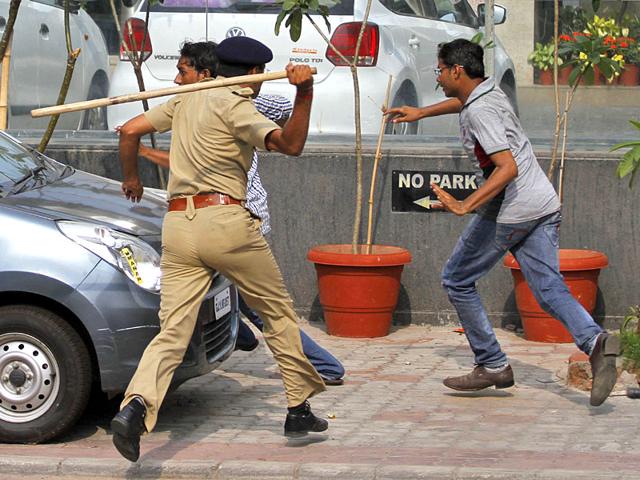Times change for Patels: Why do they want reservation now?
Caste politics helps makes caste politicians, who then cater to their charmed circle. This is why the OBC furore is crony casteism at its best.
Those were the days when the Patidars arrogantly refused reservations, in fact, campaigned in the 1980s against this provision. That was then, but Hardik Patel is now. In those times, the Patidars or Patels were seemingly optimistic about themselves and what the future held for them.

Over the years, while the Patels continued to wield political power in the same old way, their economic feet were kind of slipping from under them. About a quarter of the MSMEs (micro, small and medium enterprises) had closed down, as many as 10,000 diamond polishers lost their jobs in the past year alone, and the groundnut oil industry has always had its ups and downs. The Patels dominated all these sectors which is why a downturn in them was plain bad news. Political scientist Ghanshyam Shah estimates that eight of ten diamonds in the world were polished in south Gujarat, most notably in Surat.
Put all of this together and one can tell why the Patels are so tempted use Mandal. Employment in the organised sector is the only way out for everybody, including the Patels. Unused as they are to look for public sector jobs, the fact that they have to do their best to edge out the OBCs (other backward communities) now from this arena, galls them deeply, especially as they are politically powerful still. The Patels constitute 15% of the population but a third of the cabinet members of Gujarat's Assembly come from among them.
This asymmetry between political power and economic well being is what makes Mandal so attractive to even those who had once scoffed at the idea of OBC reservations. Therefore, if a community is politically powerful but has fallen on bad times, there is every chance that Mandal will be invoked just to prove their strength. In recent years, Jats, Gujjars and even Marathas have enthusiastically played this card and may close in soon with a winning hand.
What might stymie the Patels is the fact that they are not overwhelmingly rural like the Jats and Gujjars are. Points for backwardness, in the Mandal table, reward agricultural classes disproportionately. Therefore if you can claim to do manual labour, that your wife is out in the fields, or that that other castes have a poor opinion of you (which caste thinks well of any other?) and if you have actually broken the law and a significant number of couples marry before their legally old enough to do so, then you max the test with 12 points; whereas it takes only 11 to be considered "Backward".
Hence, Patidars/Patels, Jats and Marathas will bend their back to make sure that economic issues get caste coded such that the other Mandal criteria remain submerged. Or else, these might easily blast out of the water and scuttle their "Backward Class" ambitions. Can this movement ever succeed in getting Patels the jobs they want? Have the Gujjars succeeded? Or, the Yadavs? Or the Kurmis? In all cases, a small fraction creamed off the benefits and the bulk remained where they were. Nor, for that matter, has the Shiv Sena made unemployment among the Mumbai Maharashtrians history.
Caste politics helps makes caste politicians, who then cater to their charmed circle. This is why the OBC furore is crony casteism at its best.
(Gupta is Director, Centre for Public Affairs and Critical Theory, Shiv Nadar University. The views expressed are personal.)




